 boost your sales while also inspiring your sales team to do their best? It’s important to understand your sales demographics including your sales team’s effectiveness without having to rely on others. CRMs help you to do so seamlessly. Every data that you need to get the required key parameters for your sales team, is collected in one place with the help of CRM. They will not only give you an upper hand when it comes to reaching your sales targets, but they will also help you retain your best-performing sales reps and help everyone in your team to raise their productivity levels in today’s competitive marketplace.
boost your sales while also inspiring your sales team to do their best? It’s important to understand your sales demographics including your sales team’s effectiveness without having to rely on others. CRMs help you to do so seamlessly. Every data that you need to get the required key parameters for your sales team, is collected in one place with the help of CRM. They will not only give you an upper hand when it comes to reaching your sales targets, but they will also help you retain your best-performing sales reps and help everyone in your team to raise their productivity levels in today’s competitive marketplace.
Why do you need a CRM to track Sales Performance?
If you are worried about how effective is your Sales team, CRM will assist you in managing the performance of your sales team. You can monitor each of your sales team member’s daily performance. Customer relationship management is an important tool to measure success of your business. CRM’s have several key features, and we will discuss a few of them that will help improve your sales and help monitor your sales team’s efficiency of managing leads and customers.
- Lead management
- Qualifying leads
- Follow-ups
- Keeping a record of activities
- Insights and reports
- Sales team performance
1. Lead management
Managing your leads and converting them into customers is very important for any business. Lead management is a systematic process of qualifying, analyzing, and nurturing incoming leads in order to convert them into potential customers. Once you have acquired leads from various lead generation sources, such as WhatsApp, an online enquiry form, a digital form, Facebook, and so on, CRMs will help you to manage all your leads in one place.
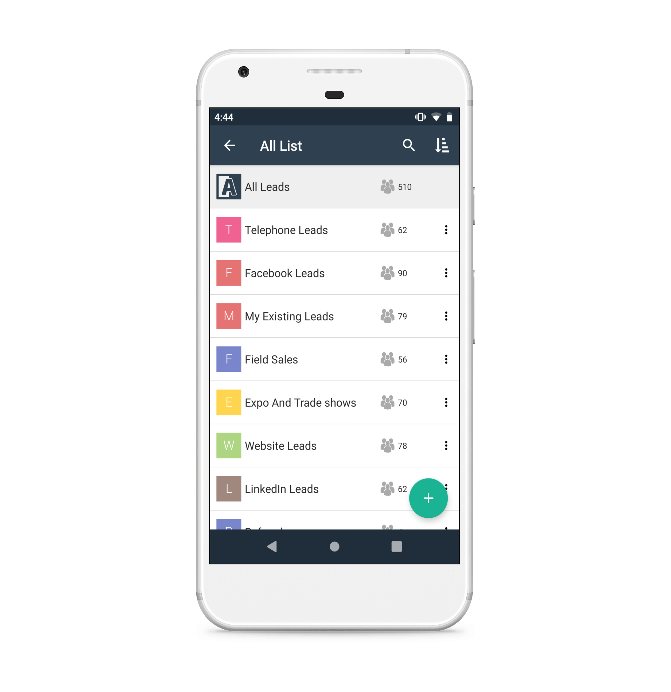
First and foremost, you should assign leads to your sales reps. The sales rep will then take care of their assigned leads and connect with them to convert them into customers.
2. Qualifying Leads
There are multiple ways to qualify your leads, namely, by potential, customer group, product group, and custom qualifiers. Your sales rep will now be in control of the leads that have been assigned to them.
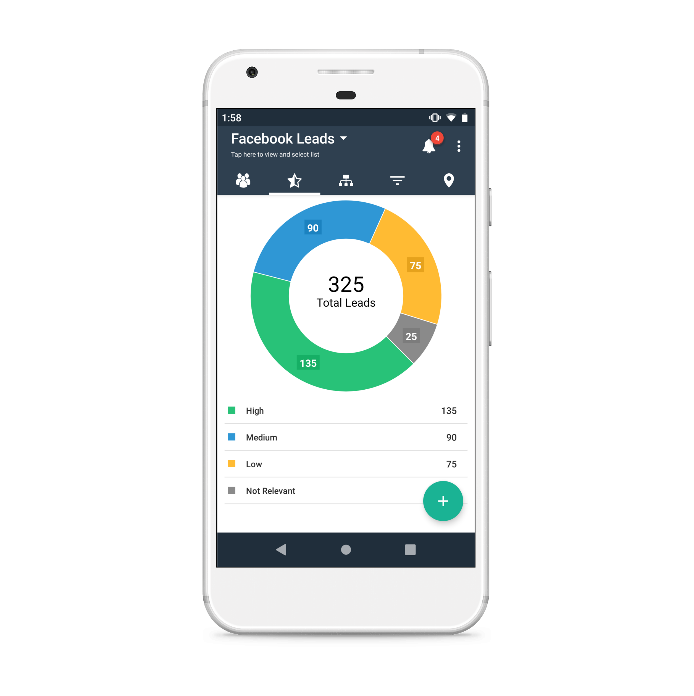
(i) Potential leads
Your leads’ potential is determined by how much interest they exhibit in your product, how often they contact you through calls or WhatsApp, their capability to purchase, and more. Potential can be categorized as low, medium, or high.
(ii) Customer group
You may have customers from various segments and business groups. CRMs allow you to create customer groups and assign a lead or customer to a specific group. When you need to send a follow-up campaign to a customer and leads from a specific group, this will make it simple for you to do so. And, this will also help you analyse which customer group has contributed more to your business growth.
(iii) Product group
Similar to a customer group, this is a feature that is used to categorize your business based on the products. A single lead may have an interest in multiple products from your offerings. Hence, you need dedicated fields in a CRM to allot products to a lead and get an insight report.
(iv) Custom qualifiers
Beyond customer and product groups, every business will have its own way of qualifying leads. Hence, the CRM you choose must have an option to create the desired number of custom fields. By having a custom field, you will be able to zero in on your lead qualifying and nurturing process. This feature also helps you qualify potential customers based on your business requirements.
3. Follow-ups
In today’s competitive business world, people have more options to choose from. Sales leads won’t convert into customers if they are not followed up and nurtured. The ultimate goal of every business is to convert leads into customers. To achieve this, your sales team must effectively follow up on leads.
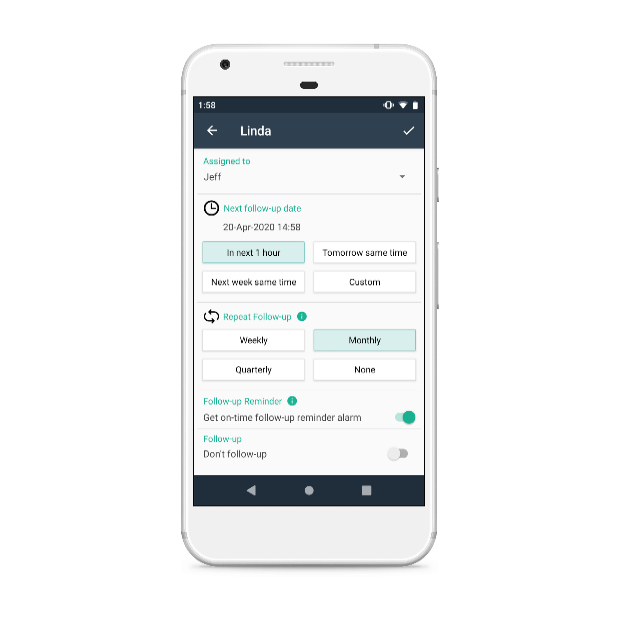
The CRM that you choose must have a feature that allows you to set follow-up dates, get on-time reminders for your appointments, and maintain constant contact with your leads.
Connecting with leads or customers increases your chances of converting your leads into customers. Remember to add a follow-up note, which may include product demos and any other time bound sensitive activities.
4. Keeping a record of activities
As humans, we have the habit of forgetting things, but CRM will help you overcome this issue. Sales CRMs will have the provision to add comments to all your threads of actions taken on the lead.
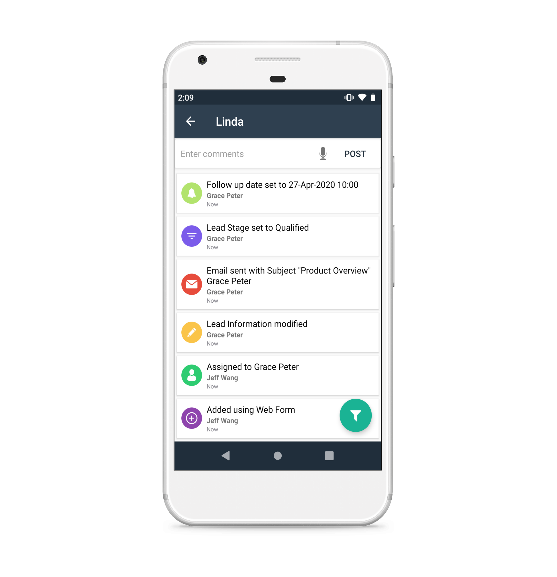
It keeps track of all the conversations and activities you have with a specific lead. This record of activities will help you when you contact your lead the next time. In a few CRMs, you will also be able to attach files if they are required for a certain lead.
5. Insights and reports
Insights and reports are critical tools for measuring and improving your sales and sales team’s performance. This will provide you with a clear picture of the result of your lead analysis, which includes lead statistics and target statistics. Lead statistics display information such as the number of leads converted to customers, leads captured, lead comments, etc. These details can be viewed for varied timelines like today, this week, this month, etc. Target statistics is a target to be fixed for a year for your sales rep, and that will be done by your manager or supervisor.
6. Sales Team Performance
Every business owner should keep track of the performance of their sales team. This will help the team to improve further in sales, eventually helping the company’s growth. The CRM will help you track the performance in a detailed way.
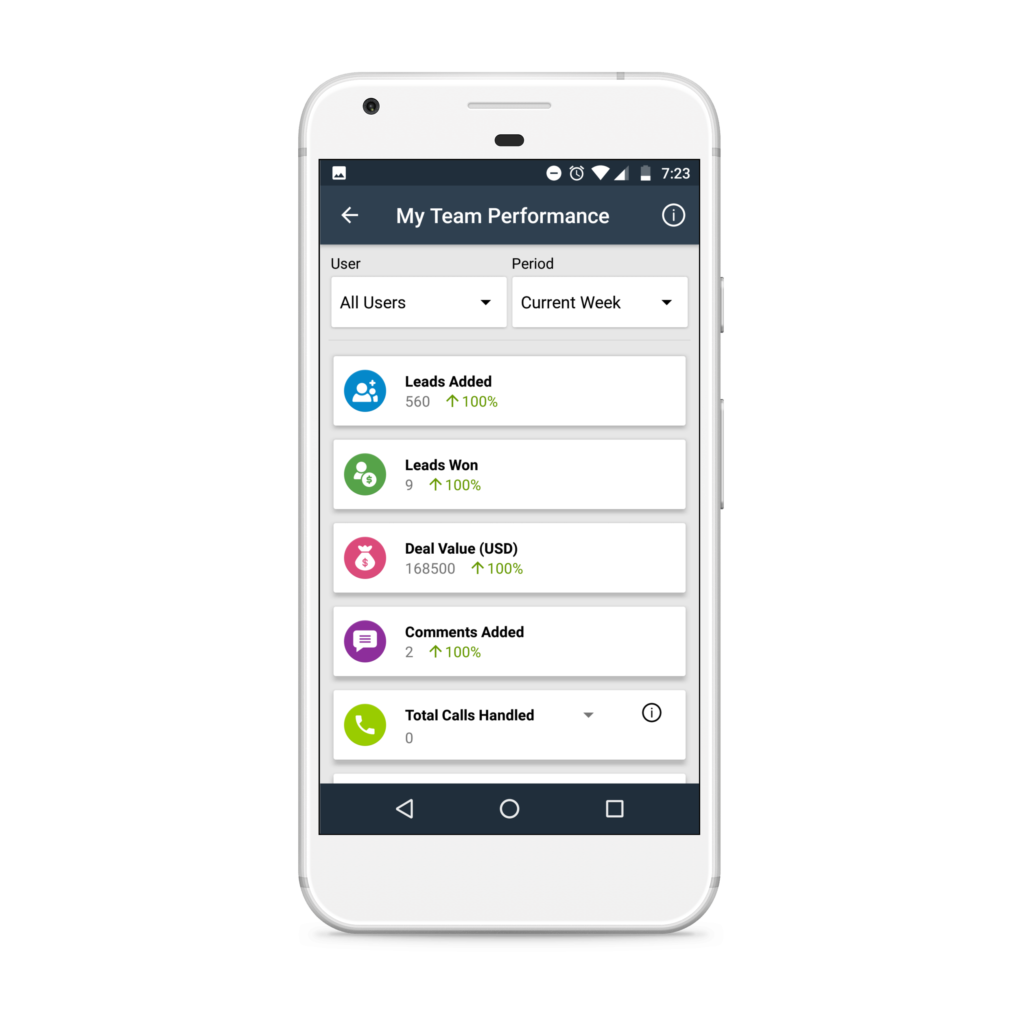
Every CRM will have different features. Some common features are reward points, leads generated and added, leads won (converted to customers), deal value, total calls handled and duration of calls, WhatsApp, email and text activities, locations visited, etc. All this data will be considered for the salesperson’s performance.
Final thoughts
Customers are the driving force for any business. Adopt an effective CRM to manage your sales process and the effectiveness of your sales team. Hope this detailed write-up will encourage you to use an effective CRM and help you with your sales and sales team.
Share this blog :











Leave a Reply